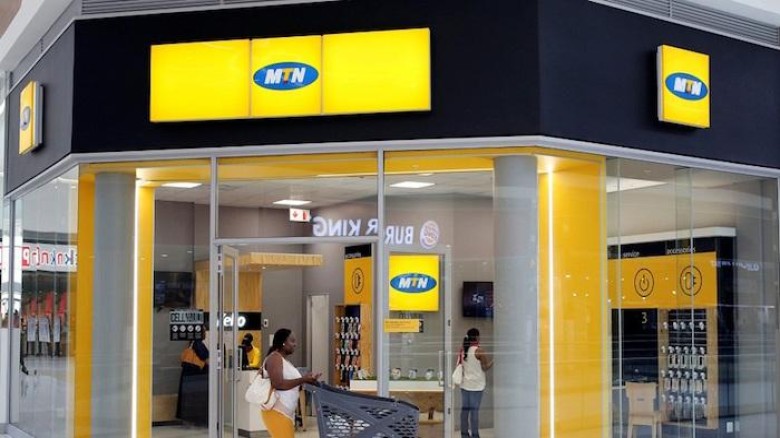Tanker drivers are poised to cease the lifting of petrol starting on Monday
Nigeria is on the brink of another fuel scarcity, with the Nigerian Association of Road Transport Owners (NARTO) declaring its intention to halt the lifting of petroleum products starting next week Monday due to the escalating cost of operations.
Members of NARTO have consistently expressed concerns about the exorbitant cost of diesel required to fuel their trucks for transporting petroleum products across the country.
Oil marketers informed our correspondent on Thursday that the price of diesel ranges from N1,250 to N1,400 per litre, depending on the location of purchase.
Yusuf Othman, the President of NARTO, issued an official statement in Abuja on Thursday, confirming that members of the association would park their trucks starting from Monday.
"Why? It's because our operational expenses exceed our total earnings, both locally and in bridging," he explained.
Othman pointed out that NARTO members have been consistently operating at a financial loss, making it unsustainable for them to endure such losses any longer.
"We will need to halt operations, at the latest, from now until Monday. Continuing to operate under these circumstances is not feasible. Many have already parked their vehicles, and more are expected to follow suit. As for the association itself, we will officially suspend operations on Monday," he declared.
He mentioned that NARTO's attempts to seek intervention from key stakeholders, including the Federal Government and industry operators, have not produced positive outcomes.
The NARTO president explained that the association had communicated the challenges of the unbearable operational costs through letters addressed to key figures such as the Chief of Staff to President Bola Tinubu, Minister of Petroleum Resources, Department of State Services, Nigerian Midstream and Downstream Regulatory Authority, Nigerian National Petroleum Company Limited, and oil marketers.
"We have corresponded up to the Chief of Staff to the President. We have sent letters to the Minister of Petroleum Resources (Oil). Our communications have reached the Director-General of SSS, NNPC's boss, NMDPRA, and the major marketers," Othman remarked, emphasizing that despite these letters, there has been "no response."
Examining the prevailing market conditions that members have grappled with for several months, he pointed out that the same freight rate that was in effect during former President Muhammadu Buhari's administration still persists.
"The freight rate from Lagos to Abuja, which was established when the dollar was at N650, remains unchanged even though the dollar now stands at N1,615. It's widely known that all our operational consumables are imported. Consequently, with the rise in the dollar's value, the cost of every consumable has increased. However, the freight rates we are being paid have remained stagnant since Buhari's time. Back then, one dollar was equivalent to N650. Today, the dollar is valued at N1,615. The average freight from Lagos to Abuja is N32," he explained.
Othman further clarified, stating, "When I mention local, it means that if you load in Lagos, you unload in Lagos. For this, from Lagos to Lagos, we receive a payment of N120,000.
"For AGO (diesel) alone, the cost of distributing fuel within Lagos amounts to N140,000 because the rate is N1,400 per litre. So, they allocate N120,000, but the expenditure is N140,000. How can we sustain operations? And this doesn't even include factors like vehicle costs, loading expenses, and driver's allowances. This is for local operations."
He emphasized that the expenses associated with transporting products from Lagos or Warri to other states far exceed the compensation provided by the government to tanker drivers as bridging claims.
The government disburses a predetermined amount to petroleum product transporters as bridging claims to ensure uniform pump prices for these products across states, although this objective has not been achieved.
NARTO serves as the overarching organization for owners of commercial vehicles in Nigeria, advocating for the interests of those engaged in transporting petroleum products, general cargoes, and facilitating passenger movement within both the country and the broader West African sub-region.
The association has raised numerous concerns about the transportation of petroleum products in Nigeria, affecting both its members and the overall effectiveness of the transportation process.
Issues such as substandard road conditions, marked by frequent potholes, deteriorating bridges, and inadequate maintenance, contribute to heightened vehicle wear and tear, increased operational costs, and extended travel durations.
The organization has voiced apprehensions regarding traffic congestion, particularly in the vicinity of ports and depots, as this significantly contributes to delivery delays and further escalates operational expenses.
Concerning inadequate parking facilities, NARTO highlighted the absence of secure and designated parking areas, forcing drivers to park in unsafe locations, exposing them to security risks and fatigue.
NARTO also expressed reservations about the proliferation of multiple checkpoints in Nigeria, citing the potential for unnecessary delays and harassment faced by drivers.
Delayed payments emerged as another issue, with late payments from oil marketers leading to cash flow challenges for transporters.
Additionally, the association has emphasized the need for safety measures, citing concerns about the theft of petroleum products, pipeline vandalism, and other security threats posing risks to drivers and equipment.
In terms of policy and regulatory matters, NARTO observed that certain depots restrict access to specific transporters, affecting competition and overall efficiency.
The organization pointed out that regulations characterized by inconsistency or ambiguity could result in confusion and enforcement difficulties. Moreover, it emphasized that transporters frequently encountered challenges in securing affordable financing for vehicle maintenance and upgrades.
























Leave A Comment